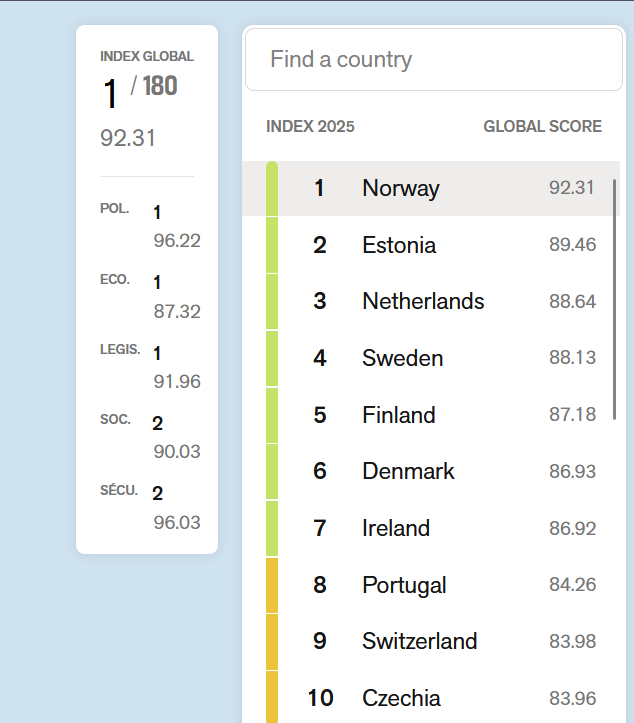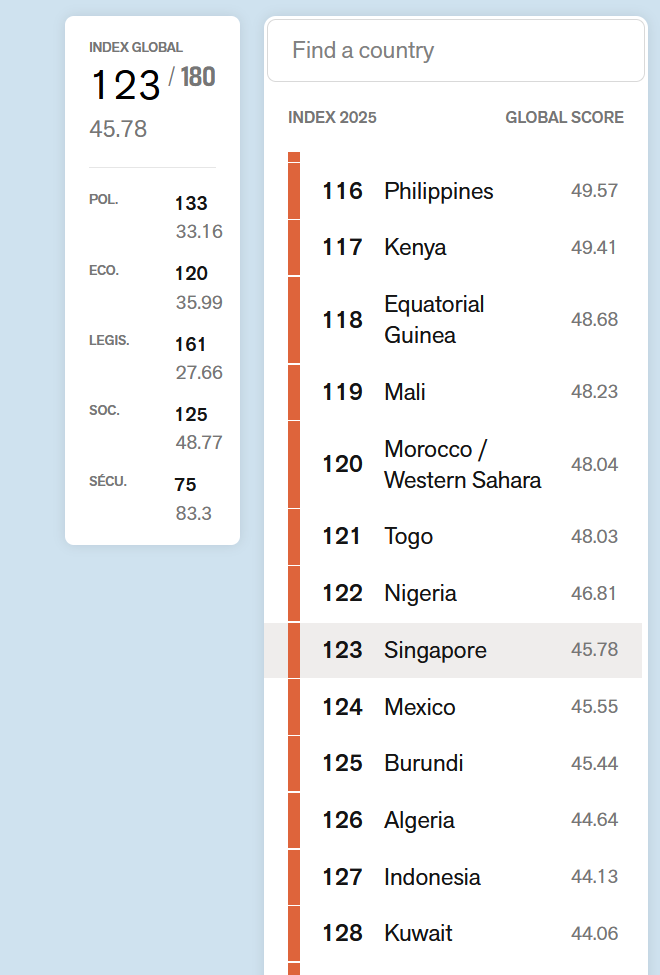The 2025 World Press Freedom Index, published by Reporters Without Borders (RSF) on 2 May, presents a sobering assessment of global media conditions.
For the first time since the Index was established, RSF has classified the overall state of press freedom worldwide as a “difficult situation.”
While violence against journalists remains a visible and serious threat, RSF highlights economic fragility as the most systemic and pressing challenge facing the media today. The economic indicator within the Index has fallen to an all-time low, reflecting a media landscape in which many outlets are caught between financial survival and editorial independence.
RSF warns that financially unstable news organisations are more susceptible to pressure from advertisers, political authorities, and media owners, thereby undermining journalistic integrity. This vulnerability, the organisation notes, creates fertile ground for disinformation and propaganda.
“Without economic independence, there can be no free press,” said RSF Secretary-General Christophe Deloire, who called for urgent reforms to stabilise the media economy and protect the sustainability of quality journalism.
To evaluate press freedom, RSF uses a comprehensive framework based on five equally weighted indicators: political context, legal framework, economic context, sociocultural context, and safety.
Each country or territory is assigned a score from 0 to 100 in each category, with the overall score reflecting the average. A colour-coded map accompanies the Index, classifying countries into five groups: good (green), satisfactory (yellow), problematic (light orange), difficult (dark orange), and very serious (dark red).
The Index is primarily based on conditions during the previous calendar year, but RSF may update scores to reflect major developments—such as coups or sudden crackdowns—occurring shortly before publication.

Asia-Pacific: authoritarian models and financial instability
In the Asia-Pacific region, RSF reports a growing use of economic levers by authoritarian regimes to control the press.
Of the 32 countries and territories analysed, 20 saw a decline in their economic indicators in 2025.
North Korea (179th) continues to function as a propaganda state with no independent media. China (178th) and Vietnam (173rd) suppress dissenting voices through a mix of state control and persecution. Freelance reporters, often the only source of critical coverage, operate in precarious conditions and under constant threat.
Myanmar (169th), after its 2021 military coup, has dismantled much of its independent press. The remaining outlets operate in exile or underground, barely surviving financially.
Cambodia (161st) and Hong Kong (140th) have seen press freedom rapidly diminish through legal crackdowns and the monopolisation of media funding by pro-government outlets.
In Afghanistan (175th), RSF reports that at least 12 news outlets were shut in 2024 following Taliban restrictions, further eroding access to independent news.
Ownership concentration and financial manipulation
In many Asia-Pacific countries, press plurality is undermined by the concentration of media ownership among politically connected elites. India (151st), Indonesia (127th), and Malaysia (88th) are named as countries where conglomerates dominate the news landscape, restricting editorial diversity.
In Thailand (85th) and Mongolia (102nd), close ties between media owners and political or military elites continue to compromise journalistic independence. In Pakistan (158th), the threat of cutting government advertising is used to pressure independent media into compliance.
Singapore: economic model praised, press model condemned
Singapore, ranked relatively high but with a declining score, is criticised in the RSF report as an example of what not to emulate in press freedom terms.
While the country is praised for economic modernity, RSF describes it as severely lacking in editorial independence.
“Although Singapore regularly presents itself as an advanced global city attractive to foreign capital, there is little respect for press freedom,” the report notes. The ruling People’s Action Party has consistently rejected the notion of the press as a “fourth estate” or institutional watchdog.
RSF highlights that independent political journalism is virtually absent. Harassment has gradually silenced outlets like The Online Citizen, whose broadcasting licence was revoked. Its editor-in-chief now operates the site in exile from Taiwan.

Pressure also rising in democracies
Even in stable democracies, financial difficulties threaten press freedom. In Taiwan (24th), Parliament reduced funding for TaiwanPlus, a public English-language broadcaster, in what RSF identifies as a politically motivated move.
Australia (29th) is also criticised for its heavily concentrated media landscape and the limited economic viability of independent outlets.
In the United States, RSF highlighted the decision by President Donald Trump in March to suspend Radio Free Asia’s shortwave services in Mandarin, Tibetan, and Lao.
The suspension has impacted coverage of authoritarian regions and led to staff furloughs, including for at-risk visa holders, creating what RSF describes as potential “information blackouts.”
Urgent need for media financial reform
Across regions and political systems, RSF’s 2025 report concludes that financial instability has become the most pressing challenge to press freedom. Without adequate funding models and legal safeguards, media outlets remain vulnerable to manipulation and suppression.
The report calls for structural reforms, including transparent public aid mechanisms, support for independent journalism, and international cooperation to counter the growing threats from both state and non-state actors.
The post RSF report says global press freedom deteriorating as economic fragility and authoritarian control deepen appeared first on The Online Citizen.


